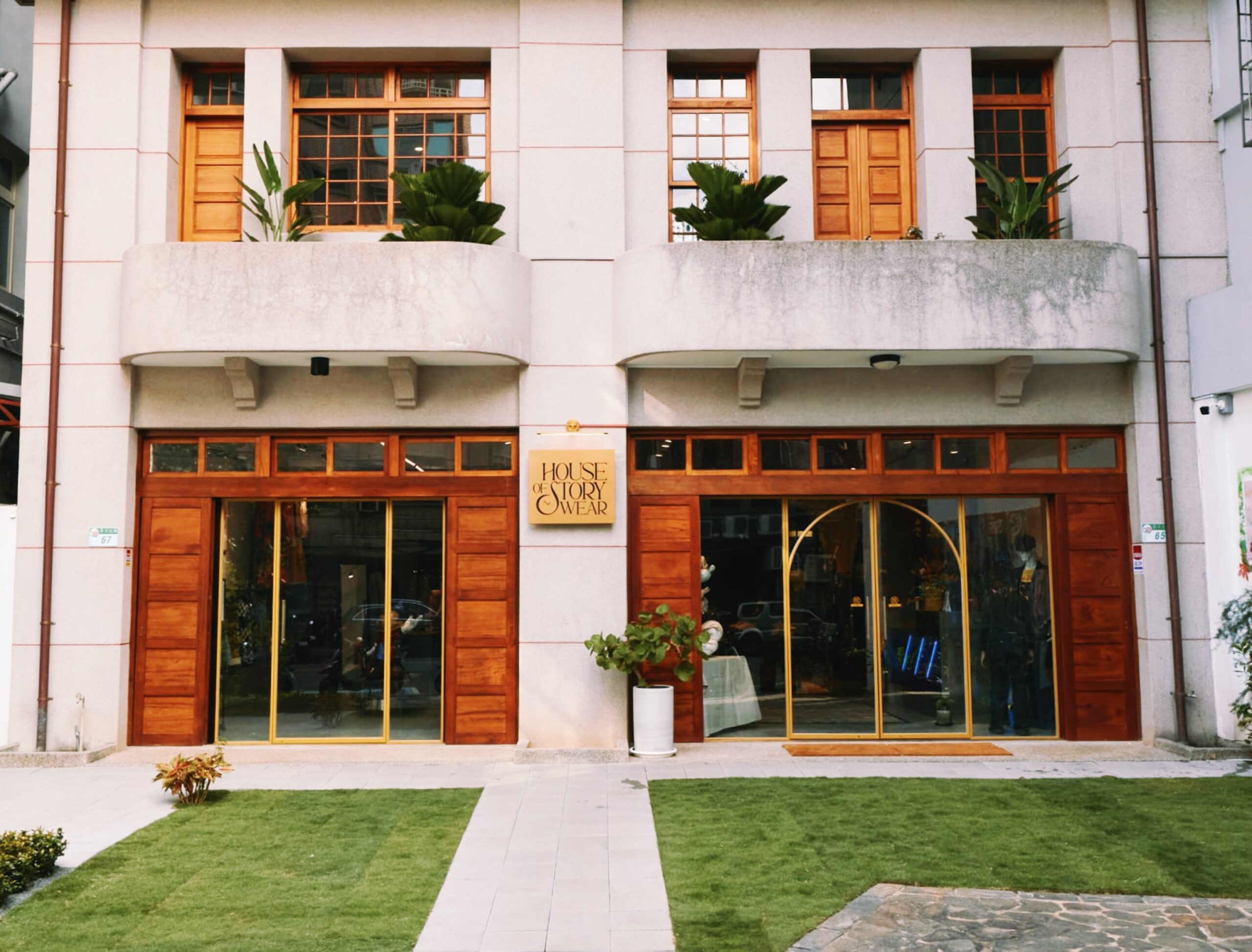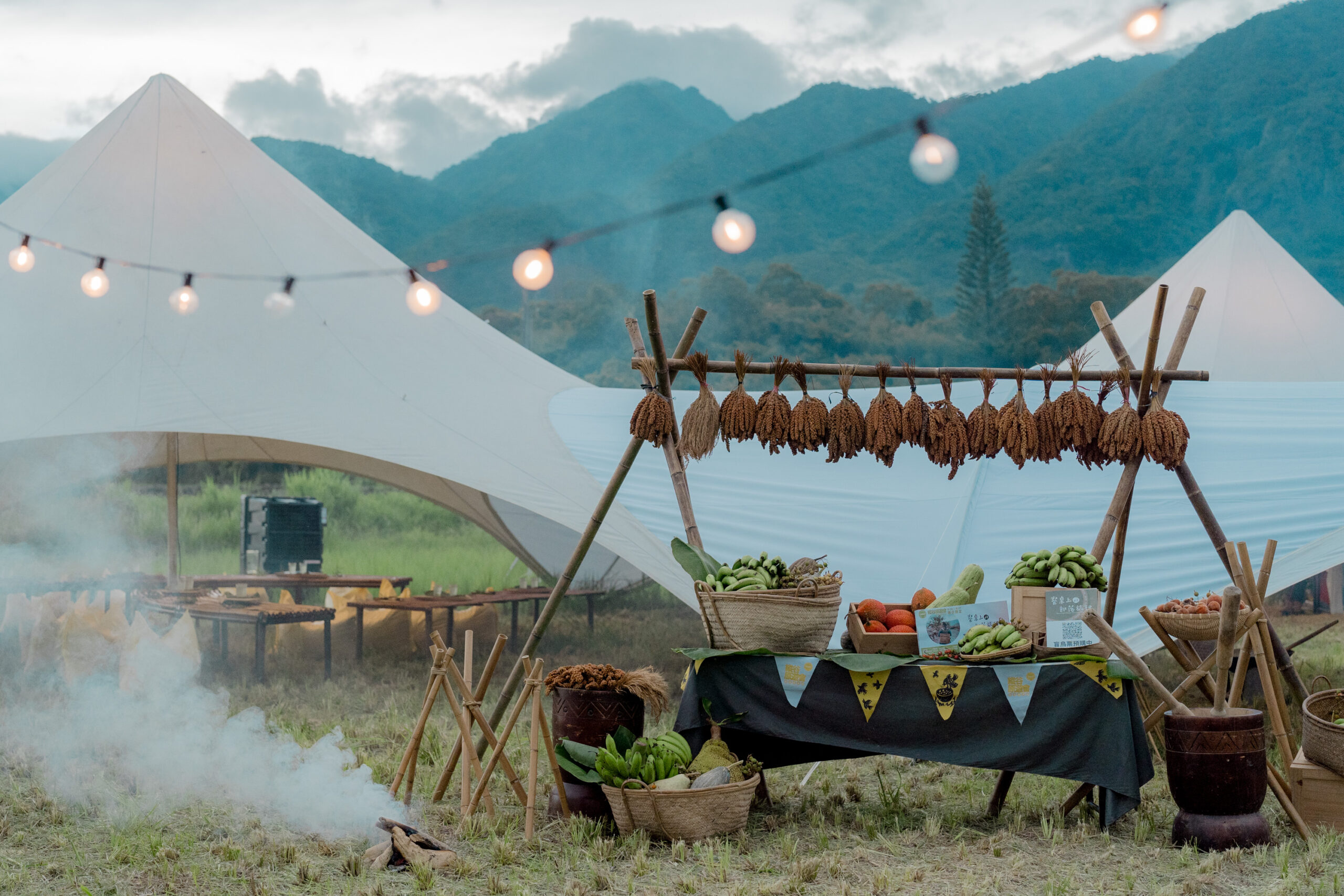Author Cat Thomas
Photos The House of Storywear, Levarcy Chen
Editor Levarcy Chen
Situated in the heart of Taipei’s old trading district, just a couple of minutes stroll from the City God Temple where visitors flock to pray for love, is The House of Story Wear department store, coffee shop, and event venue.
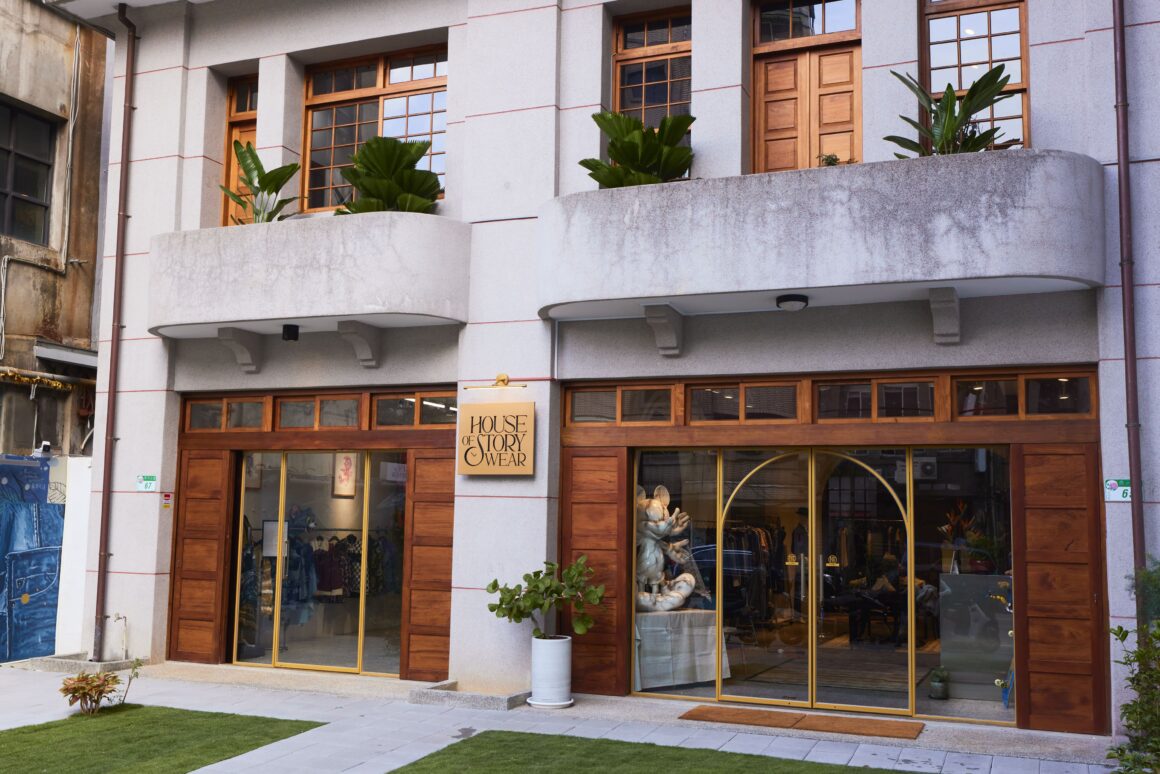
Located in a former textile factory, this is far from the department stores that might first come to mind. The moniker fits because alongside the flagship fashion brand, Story Wear, small areas are given over to other products, grouped by vendor, which all share common ideals of sustainable fashion.
Story Wear, the fashion branch arm of the business, was founded in 2019 by Kuan Pai Chen (陳冠百), who studied Fashion Management at the University of Creative Arts, London. Story Wear is well on its way to becoming an established brand, having shown at London Fashion Week and regularly featuring in Taipei Fashion Week. All their clothes are made from upcycled material, but perhaps most interestingly, the brand is committed to being a social enterprise too.
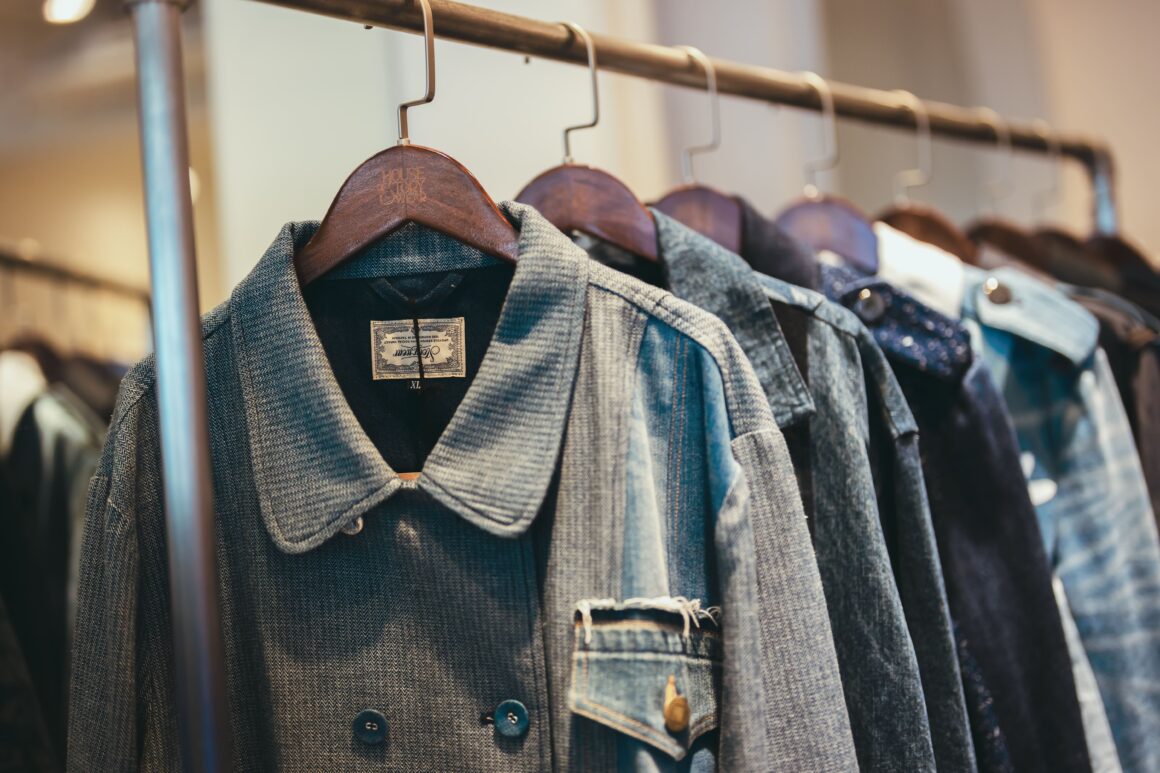
Having grown up in Dadaocheng (大稻埕), Taipei’s fabric and garment district, and home to Yongle Fabric Market (永樂市場), going into fashion might seem to be a natural progression. However, Chen’s brand is focused on rejecting the tenants that dominate the modern industry.
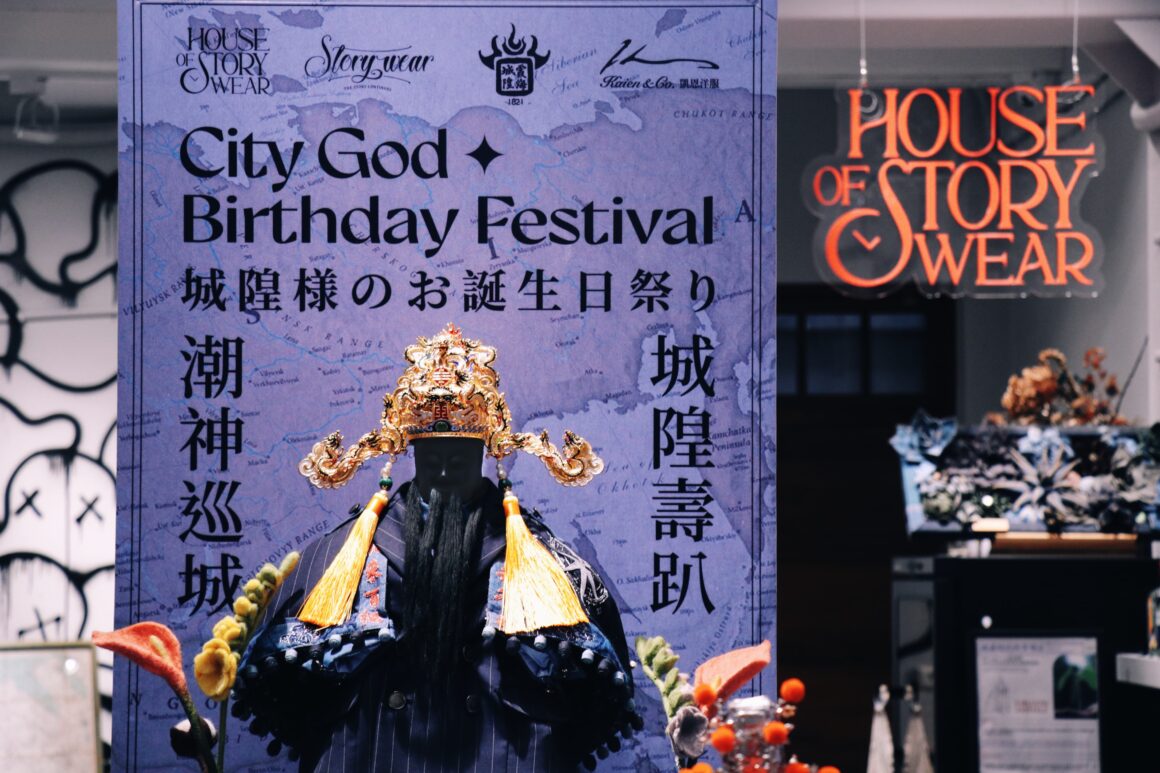
The brand is firmly fighting the fast fashion that is currently plaguing societies around the world, with the poorest countries taking on the brunt of the damage, with tons of unwanted and poorly made clothes being dumped in the sea and protected areas, from protected wetlands in Ghana to Chile.
“The fact is that some brands have 52 seasons a year now, every week you go into many brands’ stores and there’s new stuff,’ said Steven Parker, a Consultant/Adviser for House of Story Wear, in an interview with Taiwan Scene. As Parker stressed, not only are these low-quality items that don’t stand up to repeated wear, but 85% of clothes are discarded annually. According to the company website, in Taiwan alone, 438 pieces of clothing are discarded every minute.
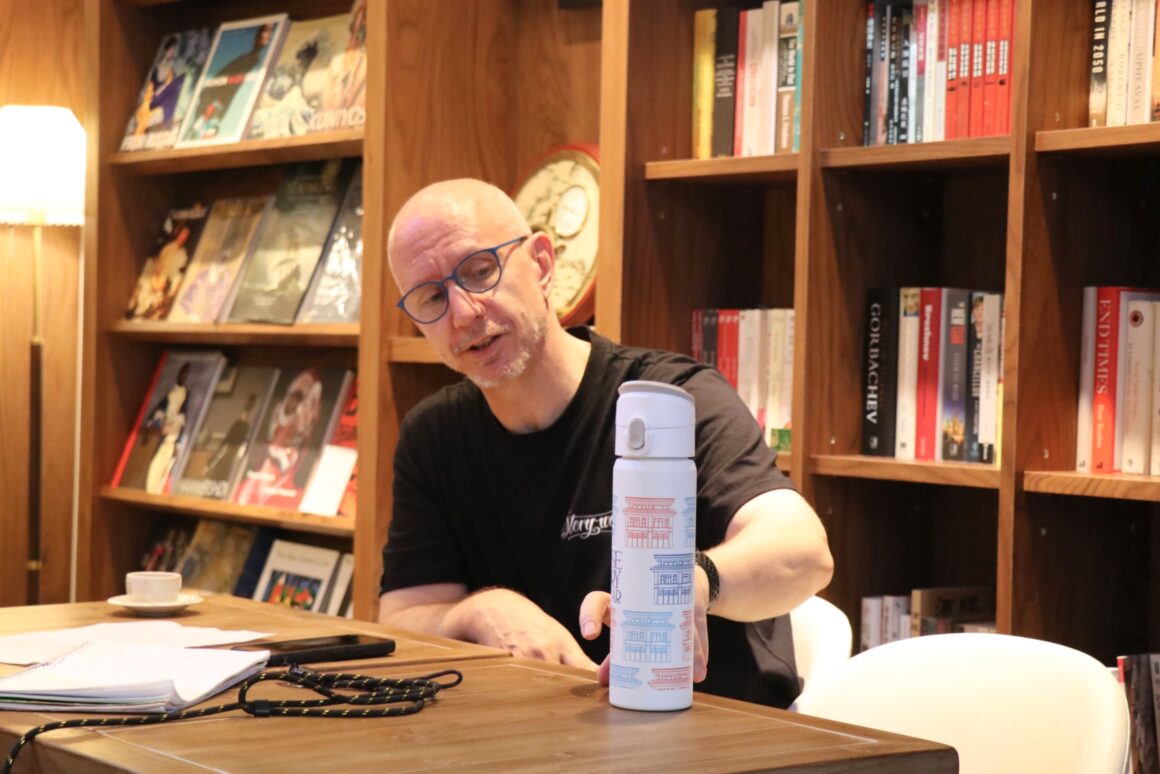
“Kuan is trying to build Story Wear as a brand that is about longevity … make it once and wear it for a while,” Parker explained. Or in other words, slow fashion.
But slow fashion comes with its own set of challenges, one of which is how to produce the designs. Labor exploitation is endemic to the fashion industry, despite the current trend for greenwashing by major labels. Chen discovered the solution by teaming up with the Cerebral Palsy Association of R.O.C to train the mothers of children with cerebral palsy how to sew. In this way, the brand is committed to social welfare, as well as environmental concerns.
“It’s all about slow fashion, but it’s also about women. It’s also about giving opportunities for an underrepresented class of people,” said Parker. “We have 70-plus women who are working with us, working from home, able to look after their kids, and producing these pieces of fashion. They’re amazing.”
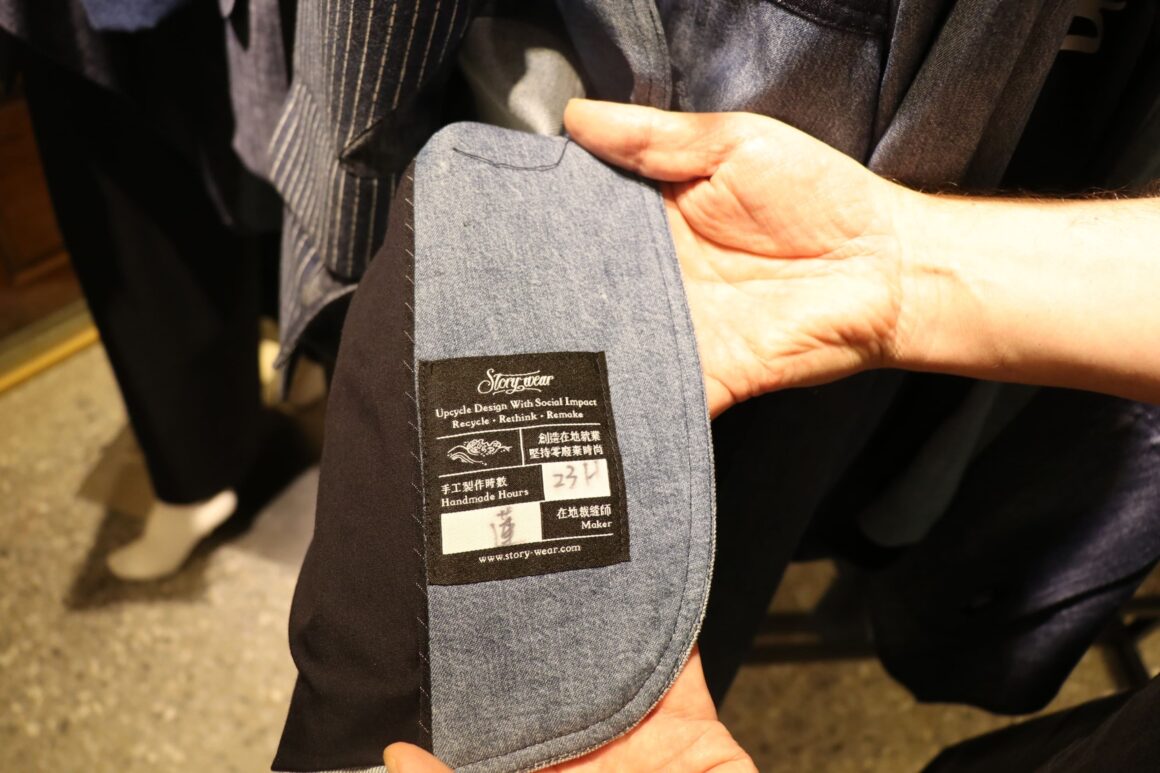
Each garment has a label inside marked with the name of the seamstress and the number of hours it took them to make. Some of their children have also gone on to represent the brand as they have become older, giving talks to kids in high schools and universities. (It’s also a nice circle back to the 1960s Taiwan, where many families ran cottage industry factories from their homes, making Barbie dolls, for example.)
Parker explained, “There are two types of people in business … mission-oriented and then finance-oriented.”
Story Wear clearly falls into the former category. Originally, the brand had half the building that they ran as a straight retail outlet, but when the other half came up for rent, they snapped it up and began work on renovating, putting a few modern twists on the original building and ensuring that they kept their ideals of recycling and sustainability to the forefront.
Opened in December 2024, there are now two floors of retail: the Library, which doubles up as a coffee shop and bar; and event spaces, including the Salon, that can be hired for private and corporate events.
It’s not just clothes on offer either. You can buy sustainable whiskey, wine, and beer, and the coffee is from Illy, who hold a B Company certificate for sustainability. There’s even a section of limited collection designer pieces and handbags, curated by T Fashion, so that people can rent that special outfit for an event, and — in keeping with the ideals of sustainability — not let occasional wear sit unworn in a wardrobe.
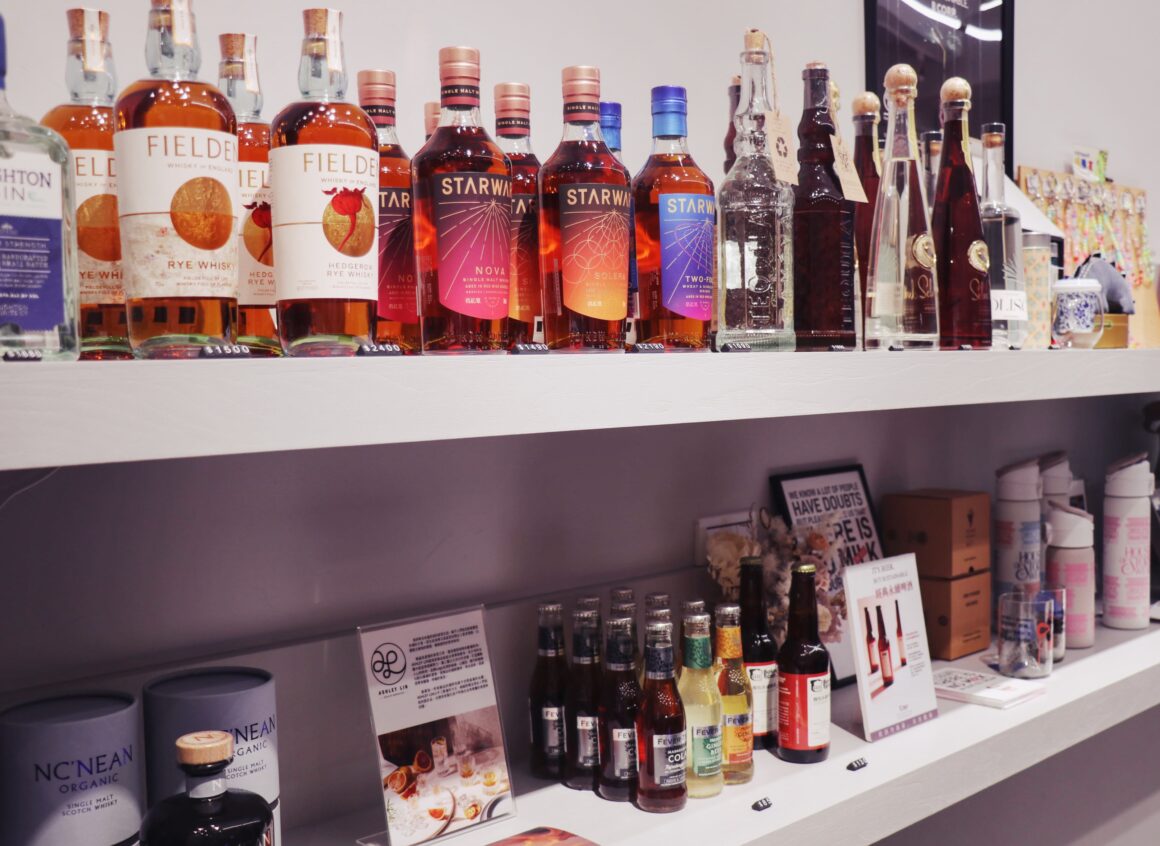
The other brands that Story Wear stocks in the department store have similar visions. Jewellery made from sea glass, trinkets made from recycled materials, there’s a wealth of suitable and easy-to-fit-into-your-suitcase gift ideas and souvenirs here, alongside one-off garments, housewares, and art made from salvaged materials.
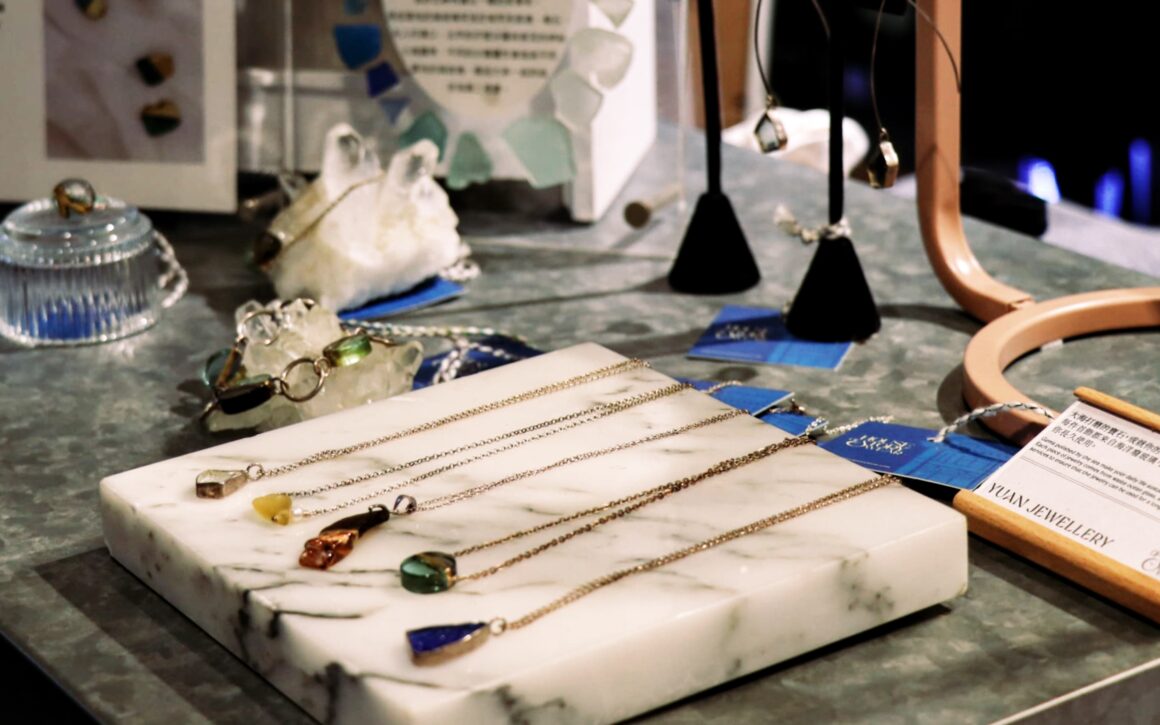
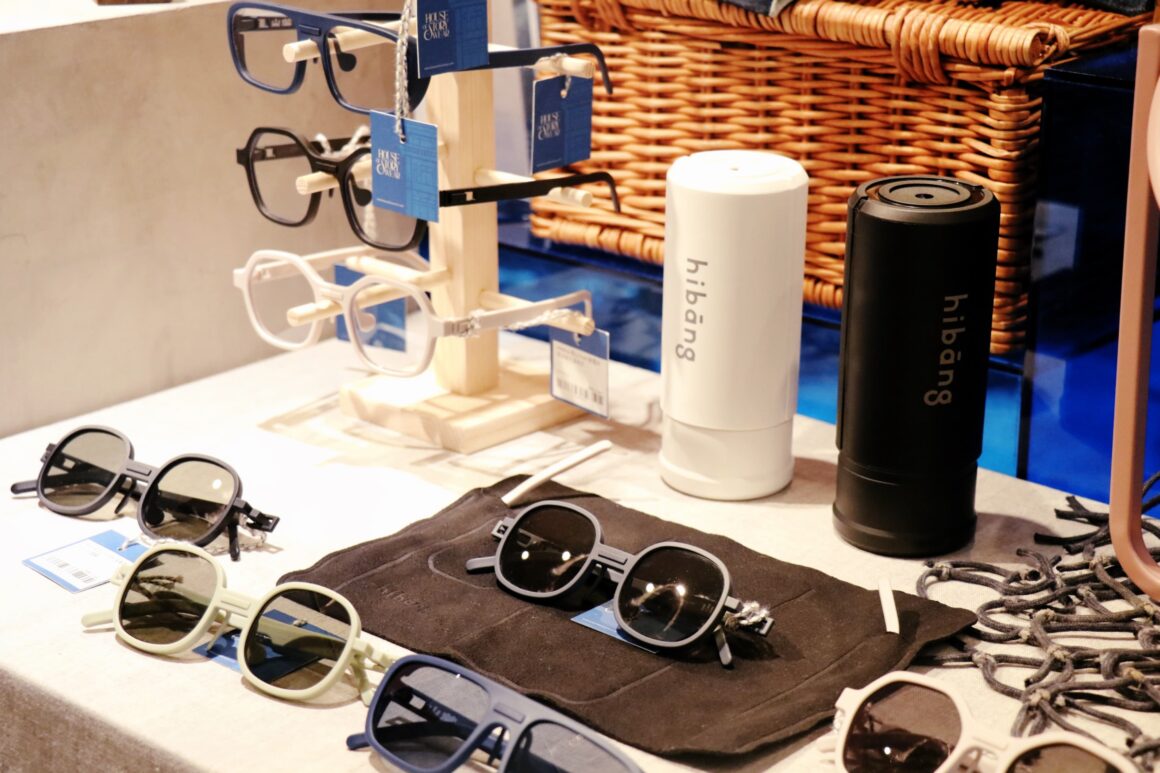
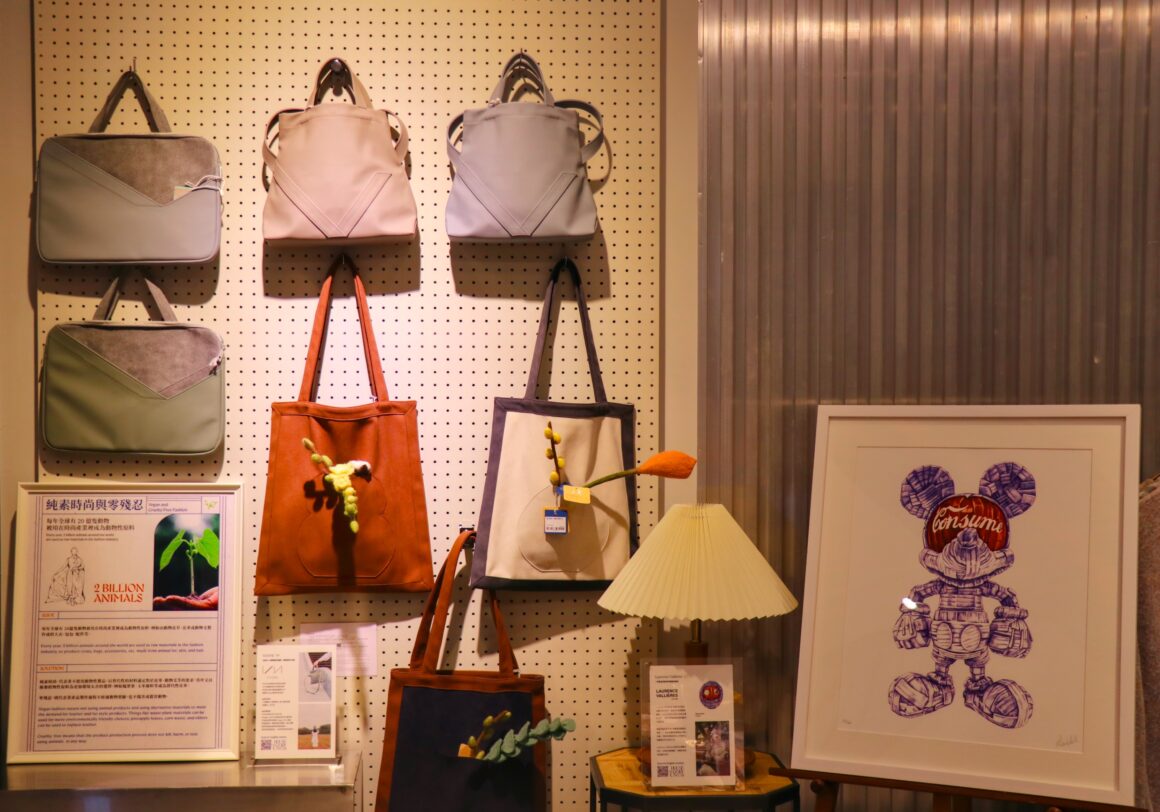
Each small section has an information poster in Mandarin, sometimes with the English version alongside, or else with a QR code to access the English version. Prices are clearly labeled, and the staff are, at a minimum, conversational in English as well as some other languages.
The venue has a busy events schedule too, where Parker assures international visitors will not feel out of place.
Reflecting on his near quarter century residing and working in Taiwan, Parker commented “One of the things I’ve really noticed is the social development of Taiwan… and I think that we are mirroring that social development … Social enterprise, the desire for social change, the desire to be better … embracing what is going on in the world in terms of climate change… this couldn’t have happened when I first came to Taiwan.”
He observed that back then there was little interest in sustainability or even second hand or vintage clothing. Now, however, as the younger generations are coming through there are people who are interested and passionate about handicrafts, making things yourself, and sustainability.
“People in Taiwan are mindful of waste, they carry their own water bottles and so on,” noted Parker. “I think this is what House of Story Wear is reflecting, an actual desire in people to be less wasteful.”
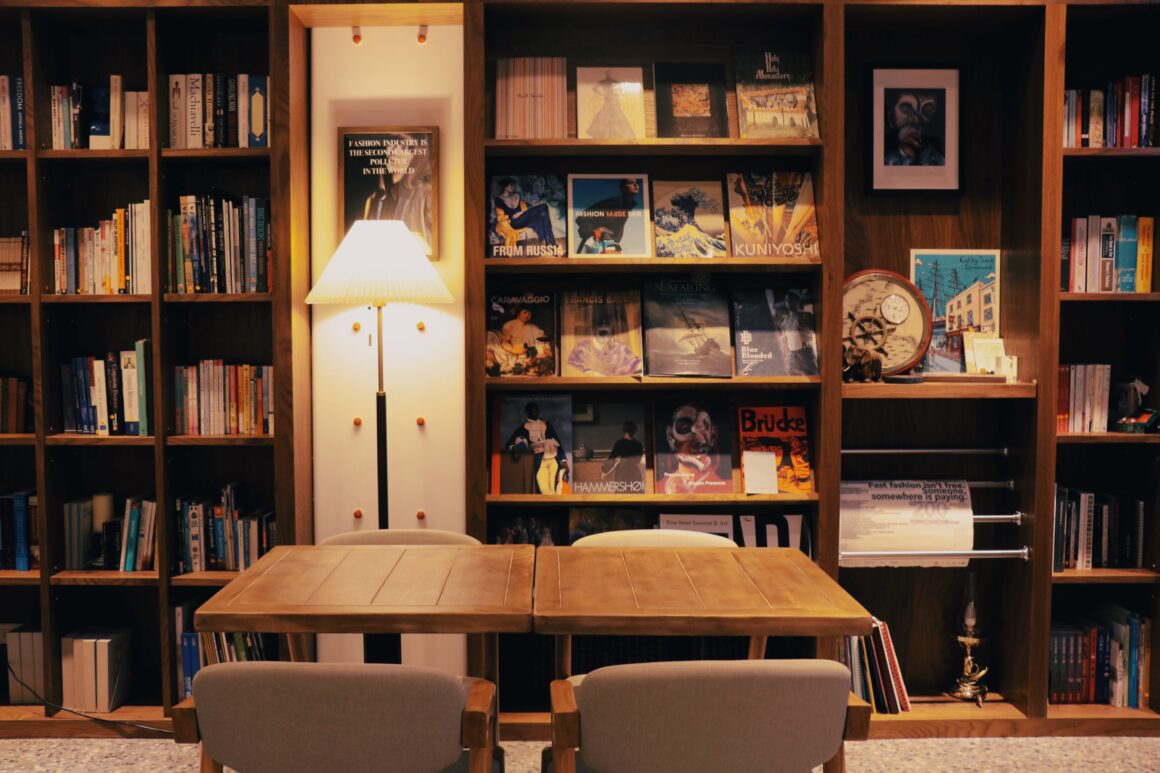
Overall, The House of Story Wear is well worth a good meander around to see just how well it’s all been done, from the restoration to the slow fashion charm. While some of the products reflect the expense of creating while ensuring that environmental and social issues are addressed, there are also plenty of smaller, affordable items on offer.
Plus, the library/coffee shop is a lovely place to relax from a busy day of sightseeing and perhaps even take some time to consider how important it is, in a world that prioritizes convenience and consumption, to support those who are trying to make real changes for the better.
Address: 📍65-67 Xining North Road, Datong District, Taipei
Opening hours: Tuesday to Sunday 11:00-19:00 (closed on Mondays)
Nearest MRT station: Beimen, exit 3 (10-minute walk)
Nearest YouBike station: Chen Tian-lai Residence, Yongle Market (2-minute walk)
Telephone: 02-2556-0070 / 0958-510-659
Email: [email protected]
Official Line: @hosw

